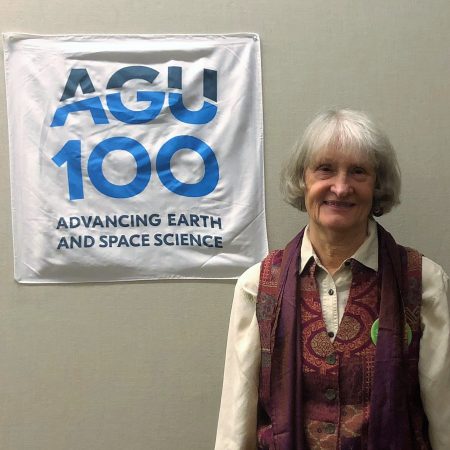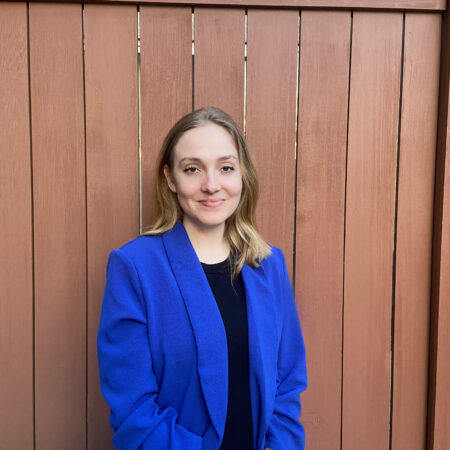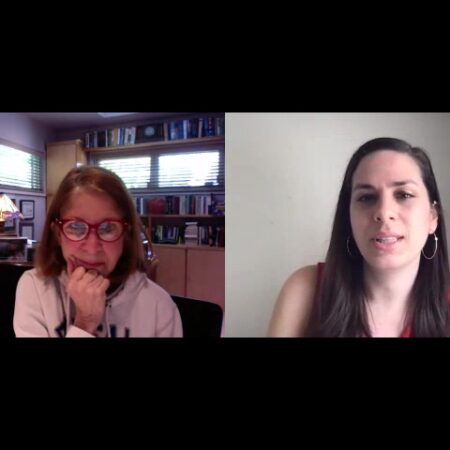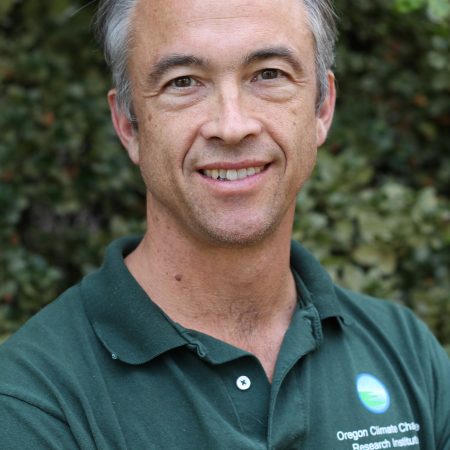Refine
Date Range Clear
Recorded by Clear
Keywords Clear
- Long Beach California 24
- Community 24
- Concordia 24
- Concordia College 24
- Army National Guard 24
- Concordia College Moorhead 24
- Brutal 24
- Rodney King Trial 24
- Court 24
- Fire 24
- #AGU100 22
- #AGU 21
- discovery 11
- NASA 10
- Collaboration 7
- changing planet 5
- Advice 4
- Climate 3
- data 3
- Mentor 3
- Advocate 2
- 116 more
Partnerships Clear
Organizations Clear
- American Geophysical Union 5
- Ameican Geophysical Union 1
- American Geophsyical Union 1
- American Red Cross 1
- European Geophysical Union 1
- 7 more
Places Clear
- Washington DC 25
- AGU 2018 Fall Meeting 21
- AGU 100 Fall meeting 1
- Boston 1
- Georgetown University 1
- 4 more
Languages Clear
Initiatives Clear
Laurie Brown, Professor Emeritus at the University of Massachusetts, has been a member of AGU for 46 years. She shares her observations on the growth of paleomagnetism at AGU and its importance in helping address climate. She also discusses how...
Jack Kaye, associate director for research at NASA's Earth Science Division, discuss his origins as a chemist and earth scientist, and how he was recruited to Goddard to be a chemist among meteorologists. "My boss would advertise me as his...
Amber Soja’s career is on fire. The resident at NASA’s Langley Research Center studies fire regimes and how they are being affected by climate change. “Every fire season is worse,” she says, adding that the changing fire regime is proof...
Casey spoke with her good friend, Courtney, about living with invisible disabilities. Casey has myalgic encephalomyelitis (ME), formerly known as chronic fatigue syndrome, which was triggered by a COVID infection in 2021. In addition to ME and Long COVID, Casey...
James Butler has studied atmospheric chemistry, ozone depletion for over thirty years. Now, as the Director of NOAA’s global monitoring, he helps direct research into the hole in the ozone layer and climate change. He knows firsthand that we have...
Michael Freilich, Director of NASA's Earth Science Division, shares about his life studying the oceans and Earth as a system. While still in his high school's oceanography club, he started exploring a question about how waves move that later became...
Mara Jill Herman (Astoria) interviews her mom Emmi S. Herman (Searingtown) on Mother's Day, 5.9.2021. They chat about community, collaboration, vaccine awareness, and legacy.
David Crisp, senior research scientist at NASA, recounted his adventures, from going from a physics education major who had a paper on Venus winds published by Carl Sagan to a doctoral student at Princeton to helping fix Hubble. He described...
Is it a good time to be a climate scientist? Yes, says Phil Mote, Director Oregon Climate Change Research Institute at Oregon State University. Predictions over the past 40 years are coming true and while some look at that with...
Emily Schaller, project manager at NASA's National Suborbital Research Center at Ames, discusses her Ph.D. work studying the clouds on Titan and her work as a science and education. She recalled how as a young child, she would study illustrations...





!["I joined an Oceanography club & actually asked the question that ended up [being] my thesis." an interview with Michael Freilich](https://archive.storycorps.org/uploads/2019/02/181212_Freilich-450x450.jpg)



